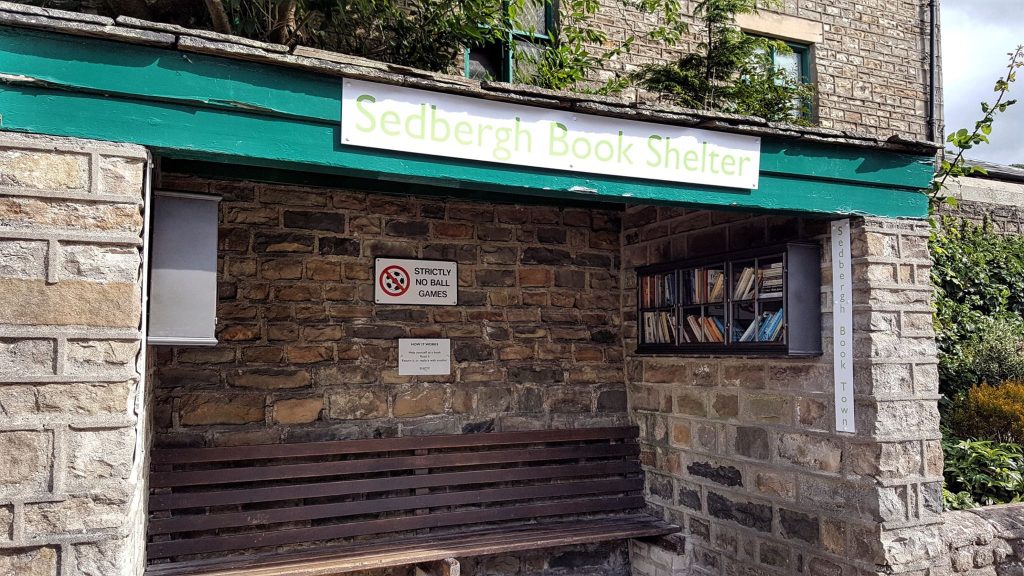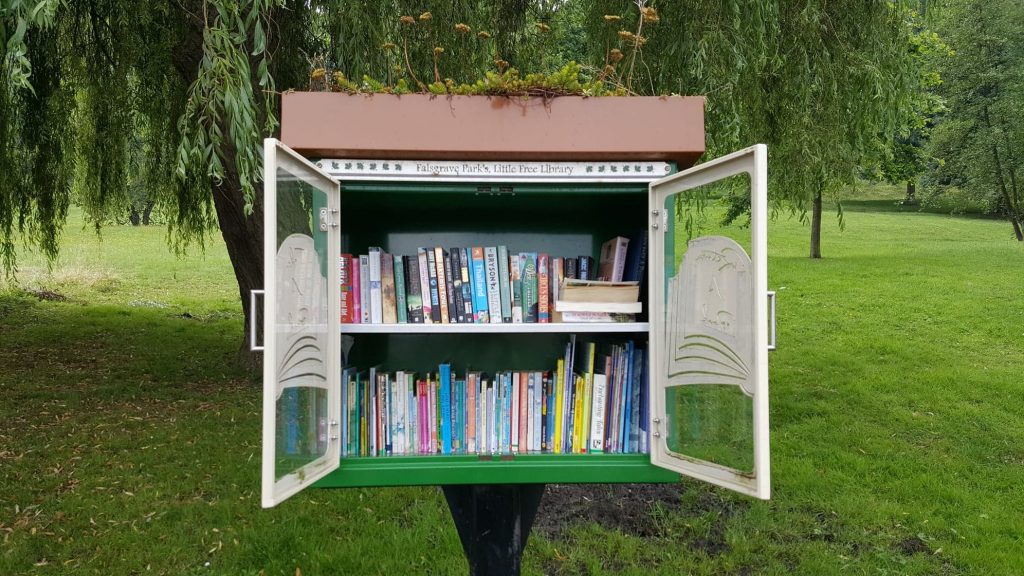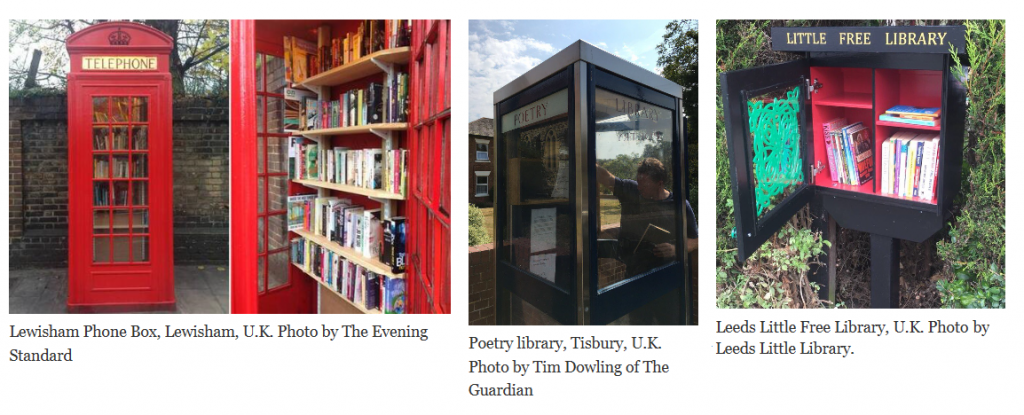
‘There are no faster or firmer friendships than those formed between people who love the same books.’ – Irving Stone, Clarence Darrow For The Defense.
Have you ever heard of a book shelter or a little library (also known as a public bookcase)? If not, then you are in for a treat. These are magical places all over the world where you can pick up a book for free, so long as you swap it with a book from your own collection, or in some cases, you are allowed to take a book and then return it once you’ve finished reading it. They are often projects led by individuals or communities to encourage people of all ages to read and to revitalise small, forgotten spaces. Unsurprisingly, these projects save and salvage parts of history and create interesting landmarks for small towns and villages.
I had never heard of them before until a town near me (Sedbergh) decided to make one out of an old bus shelter. It was met with overall praise and enthusiasm from the community and visitors, even the local papers and journalists wrote pieces about it and commented that the town is ‘up and coming’, which is no mean feat given the current political and economic climate. However, it wasn’t until I made a recent trip to Scarborough and found another free little library in the park just outside of my hotel, that I really began to wonder; how many are there? And why haven’t I ever seen one before?

I went to the internet and oh boy, it didn’t disappoint. There are thousands of book shelters and free little libraries all over the world and people love them, particularly kids. One little library in Leeds even has it’s own Twitter account and Facebook page. Iconic red phone boxes and specially made, little cupboard spaces are being turned into free little libraries and book shelters, and some are keeping historic relics from falling into ruin.

So where did it all begin?
Public bookcases were born from artists, with the earliest examples being Clegg & Guttmann’s Open Library project in 1991. Around this time, ‘free open-air libraries’ was also termed to several bookcases in Darmstadt and Hannover.
In 2001, Ron Hornbraker and Bruce and Heather Pedersen, launched BookCrossing.com. In this case there is no little library or book shelter, but rather reading materials are left in public places to be found by other bibliophiles. It is essentially book swapping on a large scale. After two years the website had over 113,000 members, and membership surpassed 1,000,000 by March 2012. Singapore became the first country to give the practice official status in July 2007, designating 2,000 locations in the country as ‘hotspots’. This initiative has gained media attention, won awards and even has an official day on the 21st April, and an anniversary convention every year.
In 2002, Trixy Royeck submitted the idea for a public bookcase and was awarded funding by the Bonn Community Foundation. A public bookcase later opened in Vienna, Austria in 2010 and in Basel, Switzerland in June 2011. These open bookcases are often financed by organisations and ‘visitors decide which books to deposit and borrow, and whether to return or exchange borrowed books for others.’
In 2009, Todd Bol and Rick Brooks started an organisation called ‘The Little Free Library’ in the United States, Winconsin. Their goal is to ‘promote literacy and love of reading’ and according to sources, more than 60,000 public bookcases are registered with the organisation and branded as Little Free Libraries. ‘It has been honoured by the National Book Foundation, the Library of Congress, Library Journal and others for its work promoting literacy and a love of reading. Funds raised by the organisation have been donated to book exchanges and to create a reading program called the Action Book Club.’
In 2012, Hollie Fraser created ‘Books on the Underground’ (akin to the aforementioned Book Crossing) she has since moved to NYC and has started ‘Books on the Subway’, so now Books on the Underground is managed by Cordelia Oxley. According to their website, ‘Books on the Underground’s aim is to get more people in London Reading. On an average week, Cordelia and her Book Fairies will put out 150 new books around the underground, on seats, benches, station signs and around ticket areas, accompanied by social media updates.’
In 2017, Hollywood actress Emma Watson launched ‘The Book Fairies’. It Started in London with the Books on the Underground project, but has since spread globally. The books left by Emma herself are selections from her book club ‘Our Shared Shelf’ and even include a message from the actress. Emma Watson said to the BBC that ‘the idea is to make people love reading again and to spread the love, like random acts of kindness.’ The Book Fairies website states that they have ‘almost 9,000 people sharing books in over 100 countries.’
Taking a step away from Hollywood and social media, the purpose of these little libraries may have initially been to encourage people to read, and later, to get kids away from iPad’s, but they are also proving to offer talking points for communities, enabling neighbours who you may have never spoken to, to have conversations in a relaxed and natural environment. They are spaces for people who may struggle to read or who feel anxious in certain public spaces, allowing them to pick up books without feeling anxious or embarrassed. Children growing up in today’s age of laptops, iPads and social media, who may have never stepped foot in a library or bookshop before, are also able to discover books. And for towns like Sedbergh, England’s Book Town, they are quirky landmarks for visitors and the community, helping to promote the town, attract new visitors, and keeping businesses alive and shops in town centres.
References:
https://frieze.com/article/clegg-guttmann
https://en.wikipedia.org/wiki/Little_Free_Library
https://en.wikipedia.org/wiki/Public_bookcase
https://en.wikipedia.org/wiki/BookCrossing